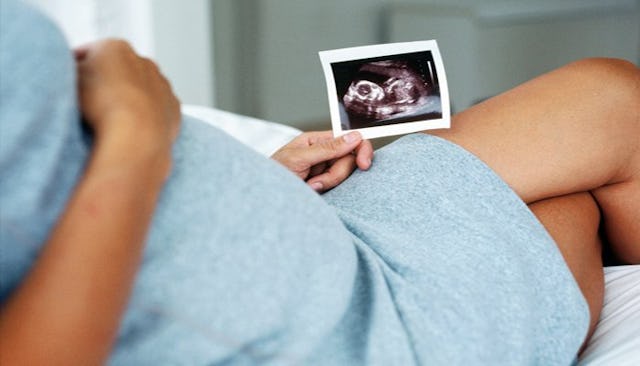5 Reasons Gestational Diabetes Didn’t Suck

I’ll admit it: When I got that call from my doctor telling me I had failed my glucose-screening test, I didn’t want to believe the news. I asked when I should follow up with the three-hour glucose tolerance test, certain this longer trial would prove my (somewhat obsessive) relationship with sugar was as harmonious as ever. “Don’t bother,” she replied stoically. It turns out I hadn’t just failed my one-hour glucose test. I had failed it by epic proportions. My doctor advised heading straight to a diabetes counselor, where I would learn how to eat like a rabbit and prick myself with a needle three times a day. Needless to say, I was not thrilled.
However, having gestational diabetes turned out to be less of a nightmare than I had anticipated. In fact, a few good things came out the experience:
1. Nice, peaceful evening walks. One way my doctor advised managing my diabetes was with exercise. Since I was in my third trimester — and not about to train for the Iron Man competition — this meant walking thirty minutes a day. I was never one to enjoy physical exertion, but, with a preschooler at home belting out Disney tunes and flinging paint like Jackson Pollock, I did enjoy getting out of the house by myself every evening. With my iPhone blasting Zeppelin and no child in sight, I walked at my own pace, pondered deep thoughts about onesies, and enjoyed some much-needed alone time on a regular basis.
2. A crash-course in nutrition. I learned a lot about how sugar affects the body, and where it was stealthily lurking (which turned out to be everywhere). While I wasn’t shocked to find it a primary ingredient in my beloved chocolate ice cream, I was surprised to learn that too many carrots, or the white rice in sushi rolls, could cause my blood-glucose levels to spike. I learned a lot about controlling the amount of sugar I let into my body, and I have to admit I felt much better for it. For an eight-month pregnant woman, I felt less exhausted, less hormonal, and more energetic.
3. Weight gain? What weight gain? Because my diet was so restrictive, I didn’t gain much weight in my third trimester. In fact, I actually lost a little weight before the end of my pregnancy. As a result, after my son was born, I was almost immediately back to my pre-pregnancy weight. Nothing eases the pain of recovering from a c-section like people continually asking, “Wait, you gave birth when?” While it’s a superficial comfort, when your boobs are sore and you’re sleeping in two-hour increments (at best), a compliment about your figure goes a long way.
4. Lots of checking in with baby. If you’re a control freak like me, it can be hard to go week after week trusting Mother Nature to work her wonders, without knowing what baby is doing in there. When you have GD, your doctor may schedule further tests, such as additional ultrasounds and non-stress tests. Toward the end of my pregnancy, I had weekly non-stress tests where I chilled out on a hospital bed for an hour while a technician monitored my baby’s heartbeat. The additional monitoring reassured me that baby was doing fine, and helped me to relax (as much as possible) during those final weeks of my pregnancy.
5. More focus on Mommy. When you’re pregnant, it’s easy to feel like you’re merely a vessel for this tiny person about to grace your home. You cease to exist as everything you do is in preparation for the new arrival – from painting the nursery to spending hours online researching the perfect diaper pail. Having GD requires you to think about yourself a little. Whether you’re going for walks or researching new healthy recipes for dinner, the focus is back on you and your health. One thing you learn with GD is that a healthy mommy makes for a healthy baby – something easily forgotten when you’re feeling too sweaty and swollen to motivate off the couch.
Of course, gestational diabetes is a serious condition that needs to be carefully managed. Even after giving birth, women who’ve had GD are at a higher risk for developing type 2 diabetes later in life. However, my point is that a diagnosis of gestational diabetes is not a prison sentence. It doesn’t have to take over your pregnancy, or affect the health of your baby. And, with the right perspective, you can make healthy changes to your nutrition and exercise habits that can last a lifetime.
Read more: Scary Mommy’s Pregnancy By Month
This article was originally published on